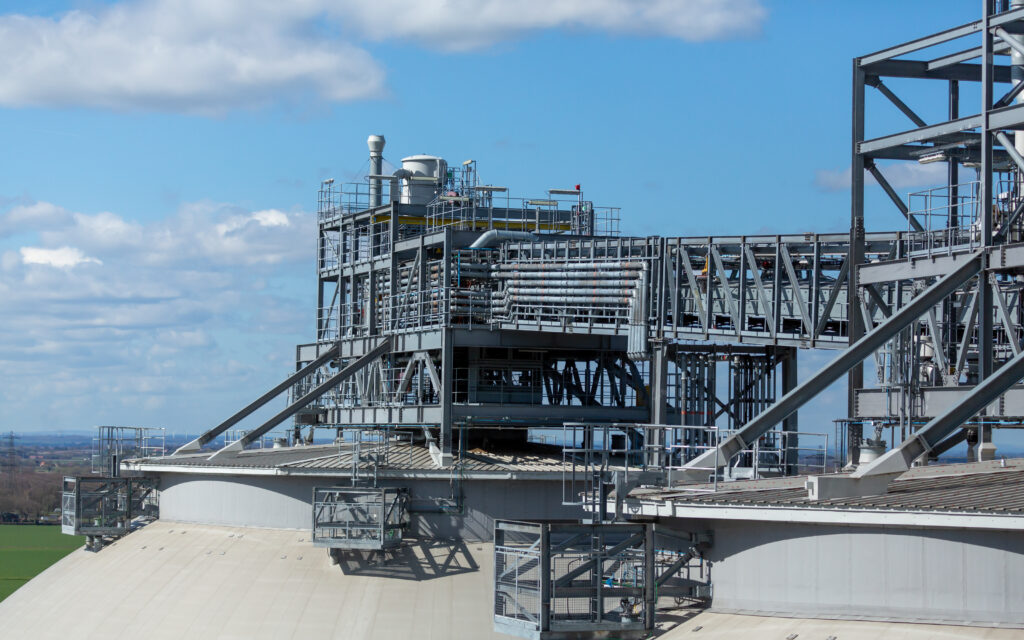By Kasia Wilk, Head of Public Affairs and Policy, EU & Asia

The UK may no longer be part of the European Union, but the decisions taken by its institutions still impact British businesses and consumers.
What happens in Brussels matters, even if Britain no longer has a seat at the decision table. You may not notice the link to the EU at first, but often technological changes have their roots in the decisions made by the organisation’s institutions.
Take for instance something as innocuous as your mobile phone charger. In recent years USB-C charging ports have increasingly become the standard across Apple and Android devices. This is no accident, an EU directive to mandate all devices for sale on the continent must have a universal USB-C charge port by the end of this year.
This European decision has made the world’s biggest tech companies reconfigure its global designs and supply chains.
If Brussels can influence how the world charges its mobile phones, you won’t be surprised to learn its decisions on climate change policy carry significant influence too.
Nearly all the UN IPCC’s pathways to net zero by 2050 require a significant scale-up of engineered carbon removals. Their importance has led the EU to begin significant policy development in this area.
The opening months of 2024 has seen developments in the space gather at pace. In February, the EU Commission set out its proposals to reduce emissions by 90% by 2040 compared to levels in 1990. To achieve this, the Commission expects to scale-up industrial carbon removals like BECCS and DACCS alongside land-based techniques such as afforestation to 400 million tonnes of removals annually by 2040.
Released alongside the proposed target was the Industrial Carbon Management Strategy providing a roadmap for the removal and storage of millions of tonnes of CO₂ within the Union in the next three decades. This stressed the need to develop further policy options and support mechanisms for BECCS and DACCS.
With the need for large-scale carbon removals made clear, attention is now turning to how to certify and ensure credibility of removal projects. The EU institutions recently reached an agreement on the Carbon Removal Certification Framework (CRCF) which will likely become a blueprint for global for carbon dioxide removals (CDR) frameworks. This framework will create a critical foundation for scaling the voluntary market for CDRs in the EU, including BECCS.
Carbon removal companies like Drax want transparent and robust rules in the sector. It is vital that only high-quality removals, and removals that would not otherwise have taken place, are credited. The regulator also must prevent the same activity from being certified twice or using the same certificate twice. This is what the EU’s proposals aim to do, and it could be a blueprint for the UK and governments around the world. However, there remains room for improvement as the CRCF framework only covers removals within the EU’s borders, which means the international nature of the voluntary carbon removals market has not been considered.
Demand for CDRs is continuing to grow, with several high-profile international deals already announced. One example is our own memorandum of understanding with Respira which would enable the firm to buy up to 2 million metric tonnes of CDR certificates.

While progress is being made by Brussels, more policy development is needed in financially incentivising carbon removals through enhanced business models. Developments could include integrating carbon removals into compliance markets like the EU’s Emissions Trading Scheme and introducing support schemes such as a Carbon Contracts for Difference. As the sector’s costs decrease through learning and economies of scale, the support frameworks could be tapered in the long-term ensuring value for money for consumers and governments.
While it can feel daunting standing at the foot of the hill staring at the summit, we know that the climate, our communities, and businesses across the continent are worth the sharp ascent.
Around 93% of emissions take place outside of the confines of the EU, but by acting swiftly Europe can lead the world on the development of a vibrant carbon removals industry.
At Drax, our aim is to become a global leader in carbon removals. We are currently progressing plans to deliver two BECCS projects – one in the UK and one in the US – by 2030.
In the UK, successful trials at our North Yorkshire power station enabled Drax to become the first company in the world to successfully capture carbon dioxide from the combustion of a 100% biomass feedstock.
We also recently announced plans to establish a new independent business unit that will focus on becoming the global leader in delivering large-scale and high-integrity carbon removals. This business unit will oversee the development and construction of Drax’s new-build BECCS plants in the US and internationally, and it will work with a coalition of strategic partners to focus on an ambitious goal of removing at least 6 Mt of CO2 per year from the atmosphere.
BECCS will provide durable, high-integrity carbon removal credits and gigatonne scalability, and is the only technology that generates reliable, renewable power while removing carbon from the atmosphere.
With many Member States continuing to rely on fossil fuels to power their grids, biomass and BECCS conversions could be a vital role in making the EU’s ambition climate targets a reality. It is critical that the EU institutions continues to develop policy at pace to ensure businesses can have confidence to invest in carbon removal projects and the credits which come from them.
The EU has a remarkable opportunity to lead the world on this important area of climate policy, and it is one I hope they seize.